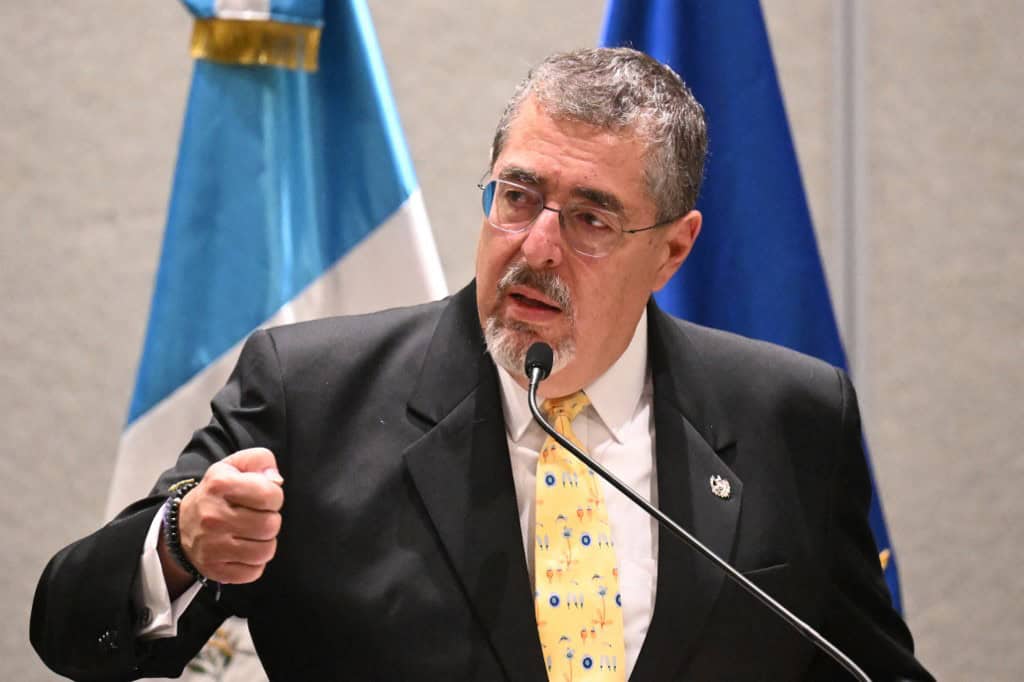After winning the presidency of Guatemala with the promise of a head-on fight against corruption, Bernardo Arévalo completes 100 days in power this Tuesday without exhibiting significant achievements. “Our number one priority is to shut off the flow of public resources to the corrupt,” Arévalo proclaimed in February, but so far he has not taken any significant measures.
He has only created a commission to detect irregularities in the public sector and reported to justice a minister from the previous government for a questioned purchase of Russian anti-covid vaccines.
Arévalo also dismissed the Minister of Environment and Natural Resources for “misuse of state resources,” after it came to light that her daughter allegedly used an official vehicle for personal activities. Despite this, political analysts and business and indigenous leaders point out that his government is “decent,” something not minor in a country that ranks 154 out of 180 countries in the corruption ranking of the NGO Transparency International.
“It is a very lukewarm start […]. There was time for them to organize a much greater offensive on the issue of fighting corruption,” said Manfredo Marroquín from the local branch of Transparency. “They could have come in stronger to document the looting of the last four years,” because “never before” was there such a high vote against the “corrupt system,” he adds.
There is no setback
Constitutionalist Edgar Ortiz states that for now there are only “good intentions,” but “a strategy” against corruption is lacking. “The people of Guatemala […] want to see concrete actions to clean up our institutions,” said Ernesto Alarcón, leader of the National Business Council.
Independent analyst Marielos Chang has a similar opinion: “We have not seen either legislative initiatives or public policies that demonstrate that they already had an idea of what was necessary to reform to reduce the spaces for corruption.”
However, Chang points out that Arévalo lacks the authoritarian traits of presidents Jimmy Morales (2016-2020) and Alejandro Giammattei (2020-2024). “It is not perceived that we are going into a democratic setback,” she notes. “So far it is a decent government, it is a government with a democratic vocation, that is not minor,” says Ortiz.
High risk
Arévalo cohabits with the questioned Attorney General Consuelo Porras, who in 2023 undertook a crusade against him that put the presidential transition at risk and which he denounced as an attempted “coup d’état.” Since he lacks the power to remove her, he reported her to the Supreme Court for “dereliction of duty” in an effort to have her removed.
But Ortiz considers that it was a “big mistake” to use the judicial route, because in the country “manipulation of the law is the fertile ground” for “corrupt judges and prosecutors.”
“What will weigh most heavily on […] Arévalo is the fact that forceful actions or a plan to follow to achieve the dismissal of the Attorney General are not seen,” Chang indicates.
Sanctioned by the United States and the European Union as “corrupt,” Porras has sought to strengthen herself with meetings with opposition legislators and mayors.
In addition, she maintains a request to the judiciary to withdraw immunity from Arévalo in order to prosecute him for alleged money laundering in his Semilla party. “The Public Ministry openly tried to stage a coup d’état and now the agenda has not changed,” Ortiz warns.
Resigning oneself to “coexist” with the prosecutor is a “high risk game” for Arévalo, because it is like “sleeping with the enemy,” Marroquín points out. The indigenous Maya leader Luis Pacheco, who in 2023 led protests against the prosecutor, grants Arévalo the “benefit of the doubt,” because “the corruption pact still has some power.”
However, “the indigenous peoples are disappointed,” because leaders who were “at the forefront of the defense of democracy” were not taken into account “to contribute” to the government, Pacheco maintains.
The hope of the United States
The president has firm support from Washington: several high-ranking U.S. officials have visited the country and Arévalo met with President Joe Biden at the White House in March.
In the most populous country in Central America, 60% of its nearly 18 million inhabitants live in poverty, which encourages emigration to the United States. “The United States was very concerned that Guatemala would continue to be governed by a group of mobsters,” says Marroquín.
The Americans “are taking care that this new government is consolidated, because otherwise they will not have a reliable partner” in Central America, he adds. According to Ortiz, Washington has lost influence in this region, especially in Honduras and Nicaragua, which is why Arévalo “becomes their hope.”






